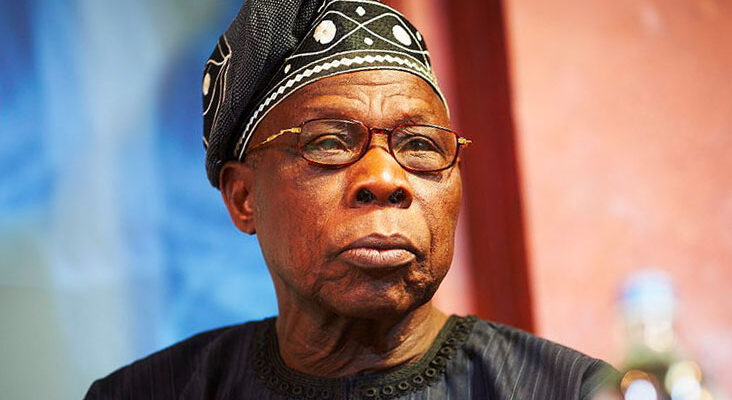
Former Nigerian President, Chief Olusegun Obasanjo, has emphasized that combating corruption in Nigeria must begin with accountability at the highest levels of government. Speaking during a virtual session titled Boiling Point Arena, hosted by a private radio station in Abeokuta, Ogun State, Obasanjo argued that exemplary leadership is essential to tackling the systemic corruption that has permeated the country.
“The best way of fighting corruption is starting from the head; that is where corruption has to be fought from,” Obasanjo stated, underscoring the need for leaders to demonstrate transparency and integrity.
The session, which highlighted Obasanjo’s tenure and his perspectives on Nigeria’s current state, delved into the pervasive nature of corruption, which the former president described as “hydra-headed.” Using a vivid analogy attributed to a former Sultan of Sokoto, he compared corruption to a “babariga” (a flowing traditional attire), illustrating the challenges of addressing it comprehensively:
“If you are folding it on one side, it’s falling apart on the other side. When you carry it on both sides, you cannot hold your hands up, and as soon as you put your hands down, it’s falling apart. That’s corruption.”
Obasanjo emphasized that the fight against corruption requires relentless effort and continuity across successive administrations. “Corruption is not a one-day affair. It’s not a one-regime affair. It has to be consistent, continual, and a daily affair. Once one regime lets off, corruption spreads,” he warned.
The former president also advocated for reforms in the recruitment and appointment of public officials, stressing the importance of merit-based selections over decisions driven by political or tribal affiliations. He insisted that only leaders with competence and integrity can genuinely serve the nation’s interests.
Touching on the spiritual dimension of leadership, Obasanjo contended that not all leaders are divinely appointed, suggesting that some may be driven by personal ambition or malevolent influences.
“Most leaders are prepared by God and put in place by Him. When that happens, the chances of success are higher than when someone makes themselves a leader, which may not be the act of God,” he said. He further warned that “Satan is real and has power” and could influence leadership, as exemplified in the biblical story of Job.
Obasanjo concluded by reiterating the need for a consistent, holistic approach to fighting corruption and fostering sustainable development. He urged Nigerian leaders to prioritize accountability, transparency, and meritocracy to build a nation anchored in integrity and public trust.
The session reinforced Obasanjo’s longstanding call for responsible governance and his belief that national progress depends on strong, ethical leadership at all levels.

Comments